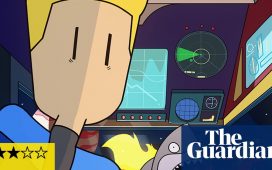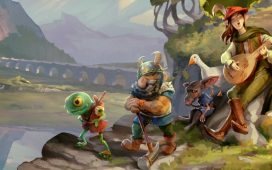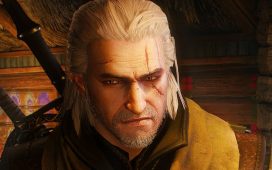It is a truth, universally accepted, that video games do not translate well to the big screen. From Assassin’s Creed to the Super Mario Bros movie, the result is usually a compromised monstrosity, ignorant of the source material and quickly disowned by the studios, directors and actors responsible for it. There have been exceptions – Detective Pikachu was weird but fine and the Resident Evil films have their fans. But films based on games are usually a mess. Have licensing managers been looking at the wrong screen the whole time?
This week, Netflix released viewing figures that showed its fantasy monster-hunting series The Witcher is on course to be the platform’s biggest-ever opening season, viewed by more than 76m households. There are question marks over how the company is now gathering its data (Netflix considers a view to have occurred when anyone watches for more than two minutes – it used to be 70% of the show). But even with such provisos in mind, The Witcher has been a success, performing well against veteran series such as The Crown (73m households).
The show’s makers have said the TV series is based more closely on the original fantasy novels by Andrzej Sapkowski than on the games, but let’s be honest: it wasn’t the books that got this series commissioned. The Witcher video game series has sold more than 40m copies worldwide, and Henry Cavill’s portrayal of lead character Geralt, who travels the mythical landscape slaughtering demonic beasts for cash, is highly influenced by the game’s depiction. There are clear nods, too, to the game’s fandom, most obviously in the bathing scene, whose game manifestation became a staple of The Witcher 3’s marketing and memes.
Fans’ reactions to the series have been mixed, but they’re clearly watching, which raises the possibility of further video game to television adaptations in the future. In a lot of ways, now that channels such as Amazon and Netflix have the capacity and expertise to commission such projects, video games make much more sense in TV than in film. Narrative games are a long-form medium, with stories that span tens, or even hundreds of hours of play. They feature many characters and plotlines that weave and intersect, often across sequential titles – a tough call for a movie studio looking to put out a 90-minute adaptation.
Certainly, movies have successfully translated long novels – The Godfather, Misery and Great Expectations spring to mind – but those books have usually been built in ways amenable to film translation, with clear three- or five-act structures and steady, focused character arcs. But game stories don’t work like that. They are very long and highly episodic, split into self-contained levels, quests or missions, the overriding story accompanied by dozens of side-quests and branchings. This is much more analogous to TV. The writing process behind epic narrative games also matches the TV system – with a team of writers working collaboratively on overarching plotlines, but also individually on separate episodes or elements.
So will The Witcher pave the way for other big video game TV adaptations? It has certainly demonstrated that the storytelling format of games can be replicated. Each episode advances the wider story of Geralt, the sorceress Yennefer and princess Ciri, but also involves its own side-plots, characters and locations. Scripts, structures and narrative models built for the games can be translated.
Ubisoft has its history-spanning drama Assassins Creed in the works for TV treatment and a Halo TV series, based on the Xbox sci-fi shooter, is in production. And there are persistent rumours that Netflix is considering a Resident Evil series. But there is plenty more material, now that video game stories are maturing and diversifying, and appealing to wider audiences. Blockbuster titles such as Grand Theft Auto, Red Dead Redemption and the forthcoming Cyberpunk 2077 are the names that get batted around, but the success of modest, character-based dramas such as Life is Strange, Her Story and Firewatch show that video game TV wouldn’t necessarily have to involve mega budgets and cutting-edge CGI effects.
Television adaptation would also allow for a more interesting interplay between the interactive and linear versions of a narrative. In Japan, there has been a constant cross-pollination between anime and video games for more than 30 years, with prominent titles crossing between the two formats, interacting and influencing each other. The extended Marvel universe has shown how effective cross-platform storytelling can be, with films, comics and games all combining to explore plots, events and character developments.
Hollywood will not stop making video game movies: we have Uncharted, Minecraft and Monster Hunter on the way, among many others, so don’t panic. But perhaps what The Witcher has shown is that as television evolves, as game players diversify, and as the games themselves tell more complex, long-arc human stories, these two media are much more comfortably aligned.













